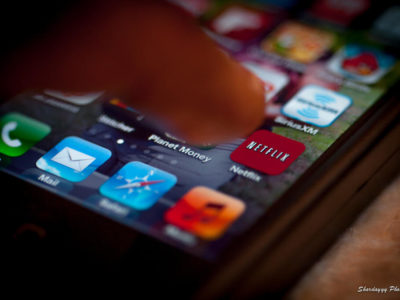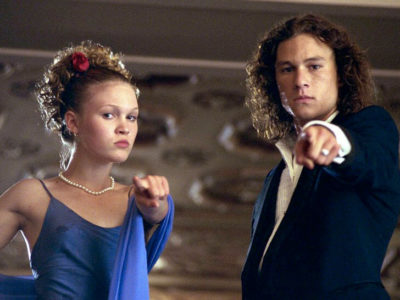Are you one of those people who blew through Orange is the New Black in half a day? Maybe you shouldn’t flaunt that fact. While you may stay in-the-know when it comes to those fictional character’s lives, you’ll soon neglect your friends’ lives, and even your life.
As Netflix’s popularity continues to grow, so does the habit of binge-watching. In a survey conducted by Netflix, 73% defined binge-watching as viewing two to six episodes of one TV show in a single sitting. More loosely, the Oxford Dictionary defines it as “the practice of watching multiple episodes of a television program in rapid succession, typically by means of DVDs or digital streaming.”
After long weeks of studying and even longer weekends of going out, why shouldn’t you relax with some drama that’s not your own? While it may feel like innocent downtime, you’ll start to unconsciously avoid problems. Hours of mind-numbing television, particularly when it takes precedent over more important tasks and relationships, can hurt your health in all areas.
Psychologically, we have reasons for spending hours wondering whether Serena and Dan will end up together, or when the next person will croak on Lost. “Cognitive empathy” keeps us hooked on the lives of people who aren’t even real. It’s how we psychologically relate and observe other people, even fictional people. It sounds endearing, but how do we know if it’s healthy for us to feel so close to people that don’t exist?
Jordan Gaines is an award-winning science communicator and Ph.D. candidate for neuroscience at the Penn State College of Medicine. “I don’t think it’s ‘unhealthy’ to care about fictional characters. If you only have empathy for fictional characters, though, that may be a sign that you need to check back in with reality,” Gaines said.
A study conducted by neuroeconomist Paul Zak signified how storytelling can affect hormone levels, like the stress hormone cortisol and the hormone associated with caring, oxytocin. When he showed a video, these hormones buzzed based on the scenario of the video. This involuntary reaction to stories makes television extremely satiable. It does more than just entertain: it actually creates an emotional response driven by our bodies’ hormones.
Television shows know what hooks viewers. It doesn’t take a study to know that a cliffhanger keeps the audience reeling at the end of a dramatic episode, particularly when Netflix prompts you to the next episode within ten seconds. TV writers play into this, making it difficult to stop watching. In September 2015, Netflix released the results of a study they conducted about captivating and maintaining viewers. They noted how providing all of the episodes at once can hook some viewers more than cable. Their study showed that different shows have different episodes to “hook” a viewer, while cable only usually has the pilot to do so.
The fact that our brains can become so emotionally attached to television storylines seems fascinating, but also concerning. In a study done by doctoral students Yoon Hi Sung and Eun Yeon Kang and professor Wei-Na Lee at the University of Texas Austin, they discovered correlations between binge-watching and isolation, depression, loneliness and inability to control compulsions.
You can’t complain about not having time to work out or study when you spend hours with your computer watching Netflix. “While there’s probably nothing wrong with binge-watching TV per se, longer bouts of time in front of the TV often means you’re being inactive,” Gaines said.
Watching TV can also become an empty bag of chips or a missed yoga class. “You can try incorporating physical activity while you watch (stretching, simple floor exercises, stationary biking), binge-watch with a friend, or limit your watch time to ensure that your day is balanced with work, play, and social activities,” Gaines said. Maybe cheap beer isn’t the only thing to blame for the freshman 15?
Hours alone in your room pretending to be friends with Blair Waldorf? Not healthy. Some people might watch Netflix with friends, but typically not for hours on end.
“So many people talk about the same shows in-person and on social media, so binge-watching also gives people a conversation topic: ‘Have you finished Making a Murderer yet?’ ‘Did you watch last night’s episode of Downton Abbey?'” Gaines continued. We find comfort in the fact that knowledge about TV can help with social interactions. “It’s how we chat with friends and connect with new acquaintances in the 21st century,” Gaines said.
Just because Netflix provides ten seasons of Grey’s, doesn’t mean you need to hit play. Utilize your self-control before you succumb to binge culture. Most importantly, beware of losing touch with reality. No matter how much you want it, McDreamy will not turn into a real person.

















